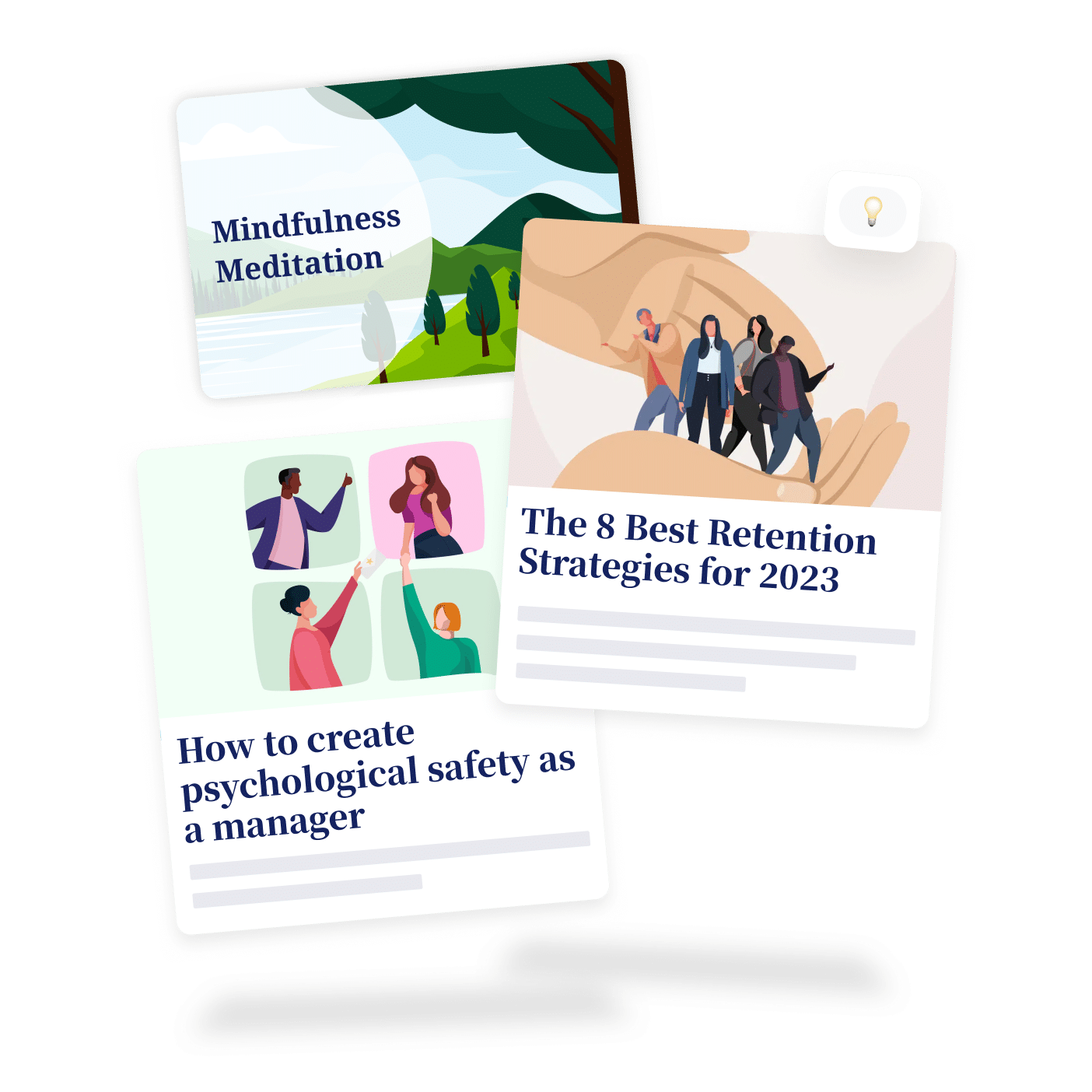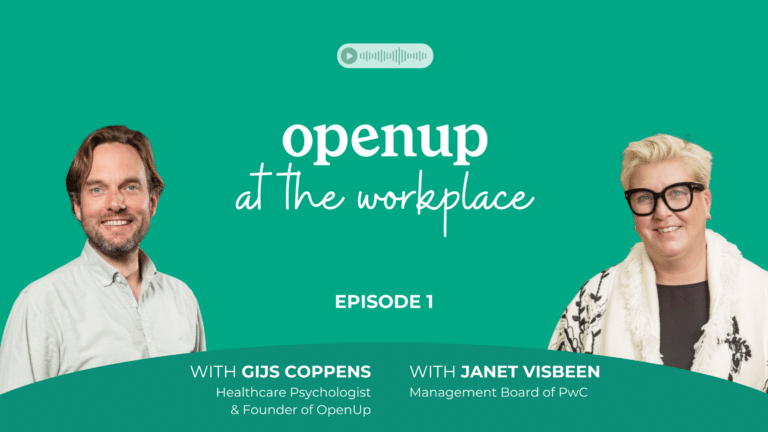How can you as an HR professional or manager look out for the well-being of your colleagues in such a performance-driven environment?
Mental well-being and consulting
Consulting attracts driven and ambitious people. People who like working in fast-paced, dynamic environments; those who want to develop quickly and to prove themselves. The so-called high achievers.
But in these same performance-driven environments, you often see that work and results are prioritised over mental and physical well-being.
This causes people to overstep their boundaries, overperform, and to work long hours without looking after themselves.
This can lead to psychological stress, exhaustion and difficulty making even the smallest decisions. And, in the long run, this will result in absenteeism and a high turnover of staff. That’s not good news for anybody.
90 per cent of people think that coming forward about mental health challenges will damage their career prospects.
From performance-driven to people-driven
Within the hierarchical structures and up-or-out systems of consultancy firms, mental well-being is often neglected. And this needs to change. Because working hard, performing well and ambition don’t have to go hand in hand with stress, burnout and absenteeism.
It’s not that high achievers need to tone themselves down or adjust their goals. It’s not even that you as a company can’t focus on good results and targets.
It means that you as an HR or People professional will want to take a good look at the culture within your organisation and the leadership you have in place.
Along with results, is there also an emphasis on the human aspect of working? Can people talk openly about their challenges at work? And is there a sense of psychological safety within teams and the organisation as a whole?
How to support your employees
A performance-driven environment is an environment where workloads are high and a lot is expected from employees, both in terms of time and energy. That’s not likely to change any time soon and that’s okay.
But, for this reason, it’s important that you equip your employees with the correct tools to handle the workload and performance pressure within existing frameworks. By doing this, you’ll create a culture where people feel safe to talk openly about their challenges and to come forward if things aren’t going well.
You can do this by refining the culture and encouraging leaders to put focus into the mental well-being of your staff. Psychologist Clara Isabell Slawik advises:
1. Create an open work culture
A work culture where people can speak openly about their thoughts, feelings and challenges is healthy. It helps people to feel good and means that they’ll be more likely to stay at the company long-term.
In an open culture, people feel free to be themselves and to speak up about things that are bothering them. This is particularly important because this openness ensures mutual trust and understanding.
In order to build an open work culture, it’s important that you understand and validate how your employees are feeling and what they need (such as feeling seen and heard).
For instance, it’s normal to feel stressed at work. But acknowledging that and proactively asking how you can support your employees here makes all the difference. A difference that people feel.
In order to fully incorporate mental well-being into the culture, you need to raise the topic regularly and proactively. Talking about it once isn’t enough. By regularly asking questions, offering the appropriate tools and solutions, and organising educational and inspiring events, you’ll show that the business is committed and employees come first.
Get into the habit of talking about mental well-being – even if that perhaps feels a bit uncomfortable at first. It takes time and a lot of trust before people feel safe enough to open up. The same is true when it comes to developing a psychologically safeculture. It will take some time before employees feel the impact of this culture, trust it, and become part of it. Make it a pattern and the rest will follow in due course.
Further reading: How Work Culture and Mental Health Are Connected






